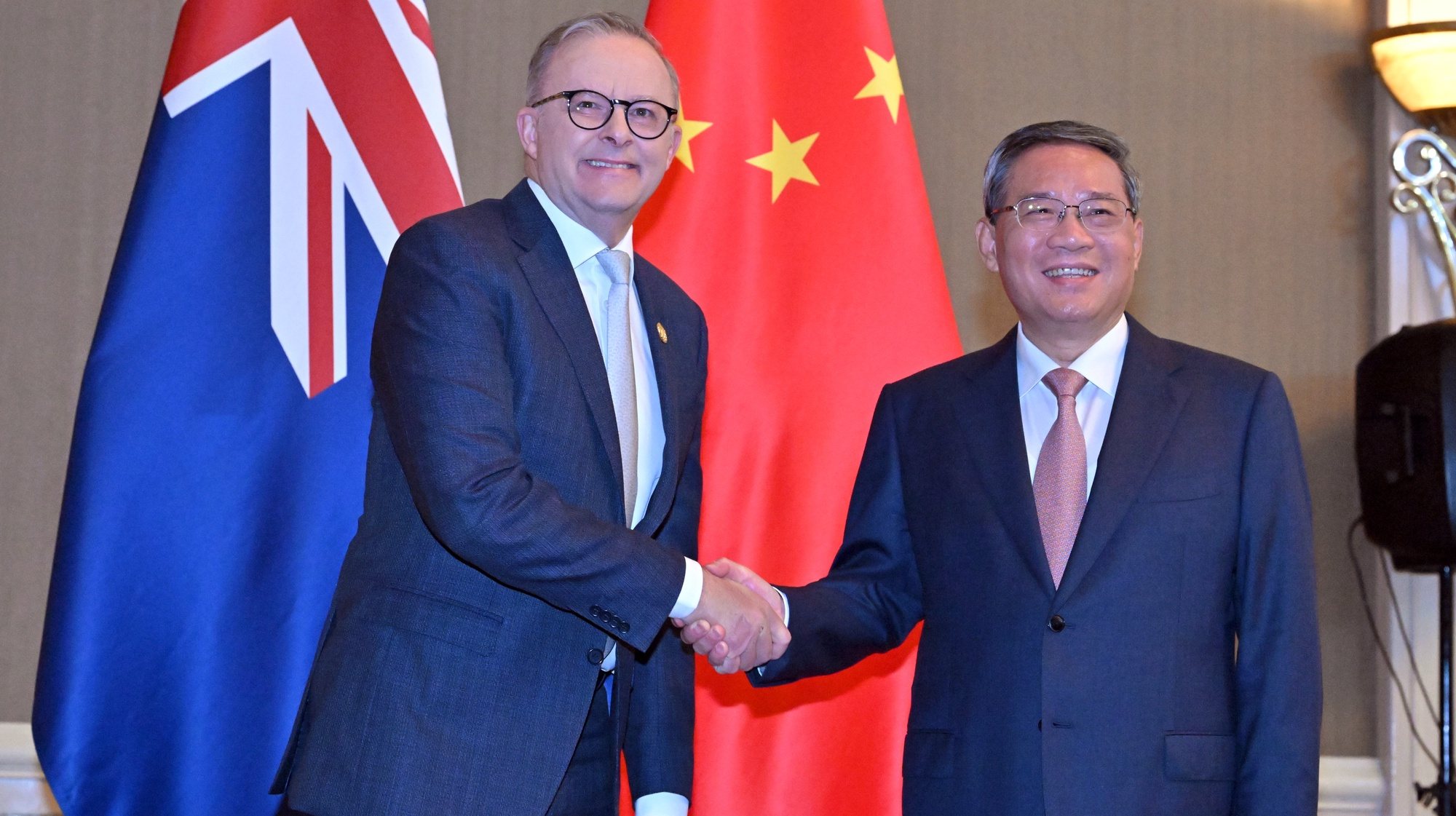The leader of the Australian Government highlighted, in Jakarta, the “current progress in the stabilization” of bilateral relations between the two countries and “the renewed commitment” to bring positions closer.
The Prime Minister of Australia announced on Thursday his intention to visit China later this year, after a meeting with his Chinese counterpart that marks Canberra’s efforts to improve bilateral relations.
“I want to visit China before the end of the year to celebrate the 50th anniversary. Anniversary of the historic visit of former Prime Minister Gough Whitlam,” said Anthony Albanese, quoted in an official statement.
The Albanian and Chinese Prime Minister, Li Qiang, met this Thursday in Jakarta, on the sidelines of the 43rd. Summit of the Association of Southeast Asian Nations (ASEAN), under the Indonesian presidency, with Canberra committed to overcoming tensions with Peking.
We had a frank and constructive conversation, welcoming the continued progress in stabilizing our bilateral relations and the renewed commitment between our two countries. We both agree on the value of expanding cooperation in areas of common interest,” Albanese said.
On the meeting table were issues such as the trade obstacles between the two countries, consular disputes and the question of human rights.
I told Premier Li that we would continue to cooperate as long as possible, disagree on what we had to disagree on, and engage in our national interests,” Albanese said, noting that issues related to the regional and international security.
The relationship between China and Australia began to deteriorate in 2017, when Canberra pointed out what it said was Chinese interference in Australian politics and the following year, banned the deployment of 5G networks by Chinese companies for security reasons.
In 2020, then Australian Prime Minister Scott Morrison called for a International investigation into the origin of the new coronavirus. responsible for covid-19, something that was criticized by China, Australia’s main trading partner, which reacted with the increased tariffs on Australian products such as barley, wine, coal and wood, among others.
Bilateral ties have shown improvements since the Labor Party came to powerlast year, and last month the Chinese authorities withdrew the 80.5% tariff they imposed on Australian barley.
Source: Observadora
